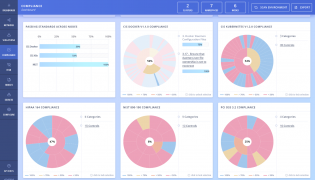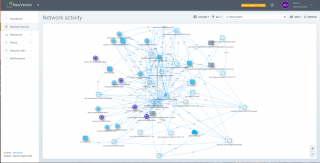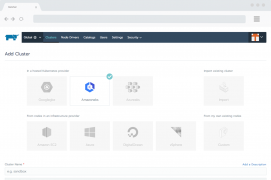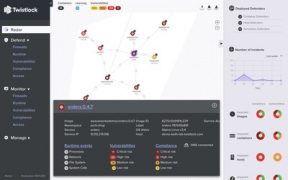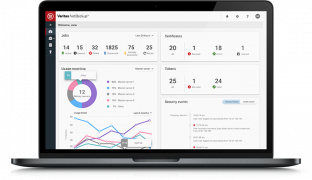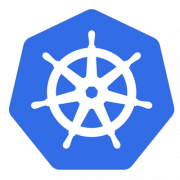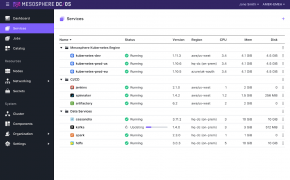Topic: containers
StackRox introduces compliance features in the latest version of its Kubernetes platform
Container security company StackRox is giving customers the means to meet more compliance standards with its latest release of the StackRox Kubernetes Security Platform. Now, the solution offers ways for organizations to verify and provide evidence that they are complying with NIST SP 800-190, PCI DSS 3.2, and HIPAA standards. Organizations will be able to … continue reading
Rancher Labs introduces a lightweight Kubernetes distribution for the edge
Rancher Labs has announced a new project designed for resource-constrained environments and low-touch operations. K3s is an open-source lightweight Kubernetes distribution built for the edge. According to the company, it can be used for ARM, IoT and CI edge solutions. “The work for k3s started as a component of Rio, an experimental project we started … continue reading
“Doomsday” flaw discovered in RunC underscores potential for critical container vulnerabilities
The discovery of a major security flaw in the common open-source runtime engine for Docker, Kubernetes and other container management systems, points to an underlying risk associated with containerized applications. Researchers Adam Iwaniuk and Borys Popławsk discovered the vulnerability, CVE-2019-5736, in RunC, the common runtime engine developed by Docker and now a common Open Container … continue reading
NeuVector to offer service mesh protection
Container network security provider NeuVector is giving users a new layer of security for service meshes. The company announced integration for the service meshes Istio and Linkerd, designed to expand security capabilities to production Kubernetes deployments. The new integration was developed in collaboration with IBM Cloud and the Istio open-source development team. According to the … continue reading
Rancher Labs supports multi-cluster Kubernetes applications
Rancher Labs today announced support in its open-source management platform for multi-cluster global Kubernetes applications, which the company believes will be a big reason for that platform’s uptake going forward. “The number of production clusters is showing that multi-cluster with Kubernetes is becoming a reality,” said Sheng Liang, co-founder and CEO of Rancher Labs. “Everything … continue reading
Cloud Foundry Foundation: Technology maturity is driving cloud adoption
As cloud technology continues to mature, more businesses are making the jump towards cloud adoption. A recent report from the Cloud Foundry Foundation found that if it weren’t for the cloud’s maturity and reliability, adoption would have diminished. The Cloud Foundry Foundation’s report is designed to look at what is driving businesses to the cloud. … continue reading
Twistlock introduces hybrid cloud, Kubernetes and serverless capabilities in 18.11
Twistlock announced the latest release of its container and cloud-native security platform with new support and features for hybrid cloud, Kubernetes and serverless. This is the company’s 15th major release in the last three years. “Since we shipped the first version of Twistlock in 2015 we’ve worked on 11,100 issues, pushed 5,800 commits, built Twistlock … continue reading
Veritas brings NetBackup to containerized workloads
Enterprise data protection company Veritas has announced it’s bringing its enterprise data backup and recovery solution to Docker-certified containers. With a new containerized NetBackup client, users using version 8.1 or later can start using the solution to protect persistent application data, the company explained. “Years ago, most containers were designed to be transient or short-lived … continue reading
Kubernetes suffers from security flaw
Yesterday, a critical security flaw impacting Kubernetes 1.10 and higher was discovered. The flaw, CVE-2018-1002105, was publicly disclosed by the Kubernetes community and reported through the Kubernetes vulnerability reporting process. According to Red Hat, the flaw could allow malicious actors or unapproved users to escalate privileges on Kubernetes installations, including the company’s own container solution … continue reading
Kubernetes 1.13 focuses on simplifying cluster management
The latest release of the container orchestration solution Kubernetes is now available. Kubernetes 1.13 is the fourth and final release of this year. The release focuses on simplified cluster management and makes CoreDNS the default DNS. “Kubernetes 1.13 has been one of the shortest releases to date at 10 weeks. This release continues to focus … continue reading
Aqua Security 3.5 comes with serverless functions and container encryption protection
Aqua Security has announced version 3.5 of its cloud-native security platform with new risk assessment controls for a range of cloud-native technologies. According to the company, this release addresses the need for runtime visibility and multi-application, multi-team policy management. A key feature of 3.5 is the ability to deploy end-to-end security for containers, serverless containers … continue reading
Mesosphere Kubernetes Engine now available
Multi-cloud automation platform provider Mesosphere announced a number of updates focused on Kubernetes, running data at scale, and machine learning initiatives. The company announced Mesosphere Kubernetes Engine (MKE), Mesosphere DC/OS 1.12 and Mesosphere Jupyter Service (MJS). As of this week, MKE is now generally available. The solution is designed to deliver Kubernetes-as-a-service on multi-cloud and … continue reading

